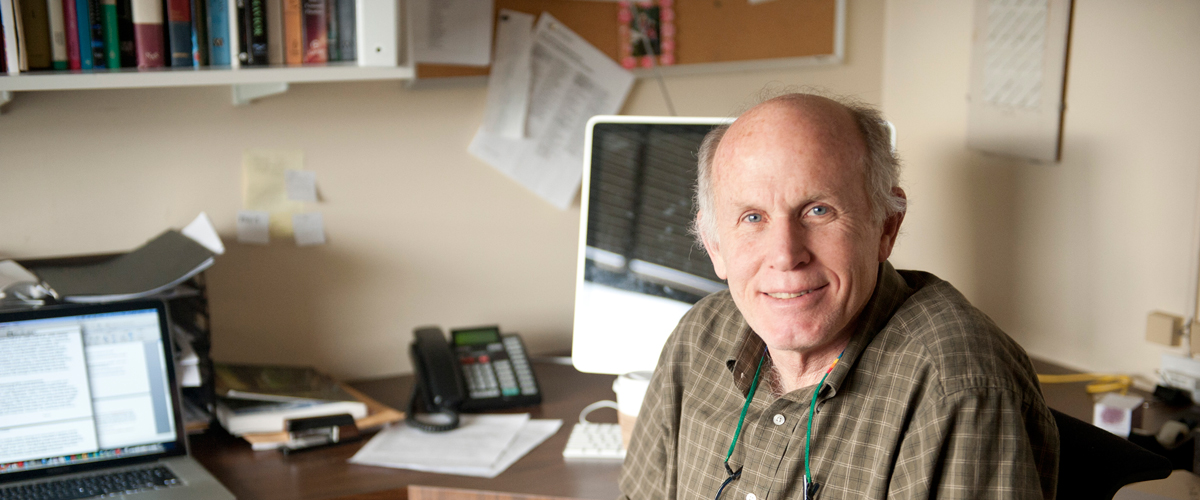A few months ago two dozen or so bits of mouse brain were starting to tick within a small black box on the fourth floor of Richards Hall. Fred Davis, a professor of biology, and his graduate student Daniel Wreschnig were studying the development of the biological clock.
In this case, the biological clock is a small region of the brain that regulates 24-hour circadian rhythms in everything from our sleep/wake cycles to metabolic genes in our livers. The results of their work were just published in the August 2014 issue of the Journal of Biological Rhythms.
“We wanted to know if the clock starts at an age when the embryo would still be carried by the mother,” said Davis. “If so, then the embryo clock is essentially part of the mother’s circadian system and might be adversely affected by conditions such as shift work that we know affect the health of adults.”
Within the clock’s nerve cells, “clock genes” turn on and off each day to orchestrate rhythms throughout the body. Davis and Wreschnig used genetically engineered mice in which light is produced whenever a particular clock gene turns on. They monitored brain tissue taken from mice at different ages during embryonic development to determine when the circadian clock begins ticking.
The age they determined suggests that the clock starts very early, an age equivalent to the first 12 weeks of human development.
Whether the fetal clock is influenced by prenatal conditions and/or maternal rhythms is an ongoing area of research in the Davis lab.

